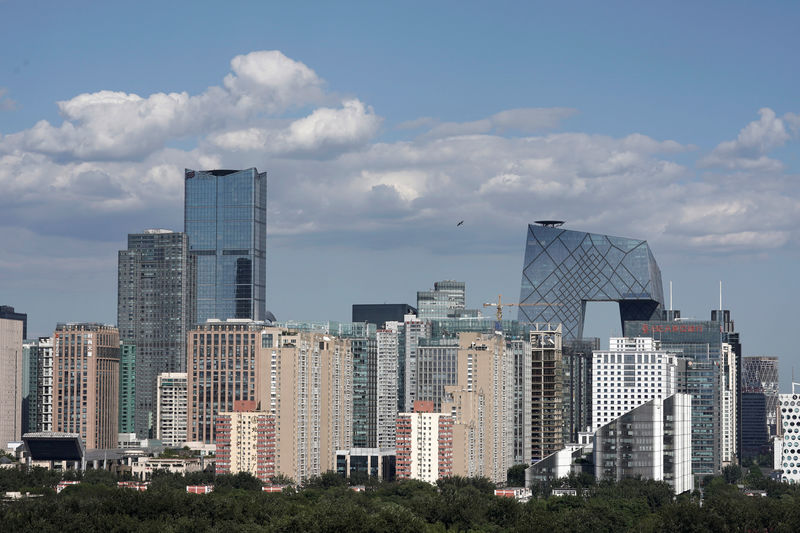By Gabriel Crossley and Yawen Chen
BEIJING (Reuters) - China's services sector activity expanded at its slowest pace in eight months in October as new orders slowed and business confidence hit a 15-month low, a private survey showed on Tuesday.
Beijing has been counting on the services sector, which accounts for more than half of China's economy, to partly offset sluggish domestic and global demand for manufactured products as a prolonged trade war with the United States drags on.
The Caixin/Markit services purchasing managers' index (PMI)slipped to 51.1 last month, matching February's low and edging down from September's 51.3. It has stayed above the 50-pointmargin that separates growth from contraction on a monthly basis since late 2005.
The fall indicates widespread pressure on the services sector, after the October reading for the official non-manufacturing PMI, published by the National Bureau of Statistics, fell to the lowest level since February 2016.
Expectations regarding the one-year outlook for business activity fell to the lowest since July 2018, the Caixin PMI showed, indicating depressed business confidence amid subdued market conditions, according to Zhong Zhengsheng, director of macro economic analysis at CEBM Group.
New orders grew at the slowest pace since February. Labor materials and fuel costs continued to rise at a faster clip than prices charged, indicating more pressure on profit margins.
While employment edged up at a weaker pace in October, the gauge for outstanding business rose further into expansionary territory, with businesses citing insufficient staffing as a reason. This implies "a mismatch between labor supply and demand," said Zhong.
One bright spot was that the volume of new work from abroad received increased for the fourth straight month in October, and at a faster pace than the month before.
Caixin's composite manufacturing and services PMI, also released on Tuesday, rose slightly to 52 in October from 51.9 inSeptember, boosted by manufacturing activity unexpectedly rising to the highest level in more than two years.

"China's economy continued to recover in general in October, thanks chiefly to the performance of the manufacturing sector. Domestic and foreign demand both improved. However, business confidence remained weak, constraining the release of production capacity. Structural unemployment and rising raw material costs remained issues," said Zhong.